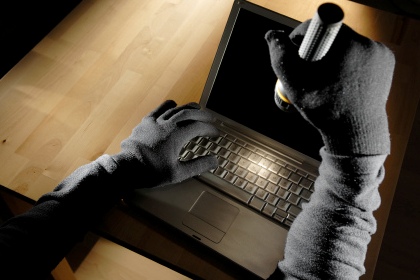Terrorist suspects forced to hand over encryption keys
The police have the power to put you in jail if you don’t hand over encryption keys to the data they want.

Defendants will have to give encryption keys to police even if the data it unlocks incriminates them, a British appeals court has ruled.
An appeals court has heard the case of two defendants who were arrested under the terrorism prevention act. One suspect's homes was searched, revealing computer material which was partially encrypted.
The Regulation of Investigatory Powers Act imposed a legal obligation for them to reveal the full encryption keys and allow access to the encrypted material, the ruling said. However, the suspects appealed, claiming that it was incompatible with the privilege against self-incrimination.
The appeals ruling said that as the encryption key was no different to a physical key, it existed separately from their will and so the self-incrimination defence couldn't be used.
The court said: "The key to the computer equipment is no different to the key of a locked drawer. The contents of the drawer existed independently of the suspect; so did the key to it. The contents might or might not be incriminating; the key was neutral."
It is Part three of the RIPA act which requires people under particular circumstances to supply encryption keys to particular authorities. It has caused controversy as a failure to disclose decrypted data could lead to a penalty of up to two years in jail.
Critics have said that law enforcement could cost businesses by mishandling this data, with some of the provisions complex and even unworkable.
Get the ITPro daily newsletter
Sign up today and you will receive a free copy of our Future Focus 2025 report - the leading guidance on AI, cybersecurity and other IT challenges as per 700+ senior executives
-
 Bigger salaries, more burnout: Is the CISO role in crisis?
Bigger salaries, more burnout: Is the CISO role in crisis?In-depth CISOs are more stressed than ever before – but why is this and what can be done?
By Kate O'Flaherty Published
-
 Cheap cyber crime kits can be bought on the dark web for less than $25
Cheap cyber crime kits can be bought on the dark web for less than $25News Research from NordVPN shows phishing kits are now widely available on the dark web and via messaging apps like Telegram, and are often selling for less than $25.
By Emma Woollacott Published
-
 Judge strikes down NCA attempt to grab Lauri Love's encryption keys
Judge strikes down NCA attempt to grab Lauri Love's encryption keysNews Magistrate rules police should have used RIPA in federal reserve hack case
By Jane McCallion Published
-
 CPS confirms Gary McKinnon will not face charges in the UK
CPS confirms Gary McKinnon will not face charges in the UKNews Ruling brings hacker's decade-long legal ordeal to an end.
By Caroline Donnelly Published
-
 LulzSec hackers plead guilty to DDoS attack charges
LulzSec hackers plead guilty to DDoS attack chargesNews Pair admit staging attacks on high-profile websites, but deny other charges.
By Caroline Donnelly Published
-
 BT told to block Newzbin 2
BT told to block Newzbin 2News The High Court says BT has to block the website, as MPA claims a victory against pirates.
By Tom Brewster Published
-
 Major m00p hacker sentenced to 18 months
Major m00p hacker sentenced to 18 monthsNews A hacker, who was a major player in the m00p group, has been sentenced to 18 months in prison.
By Tom Brewster Published
-
 CPS drops piracy case against 'scapegoat' teen
CPS drops piracy case against 'scapegoat' teenNews Middlesbrough Crown Court has dropped a case against a teenager for file sharing.
By Nicole Kobie Published
-
 UK gets final EU warning over Phorm
UK gets final EU warning over PhormNews The European Commission is now a step away from taking legal action against the UK government over the Phorm trials.
By Nicole Kobie Published
-
 Pirate Bay founders denied retrial over judge ‘bias’
Pirate Bay founders denied retrial over judge ‘bias’News The Pirate Bay suffers a blow as it is ruled that the judge in charge of the original copyright case was not biased.
By Asavin Wattanajantra Published